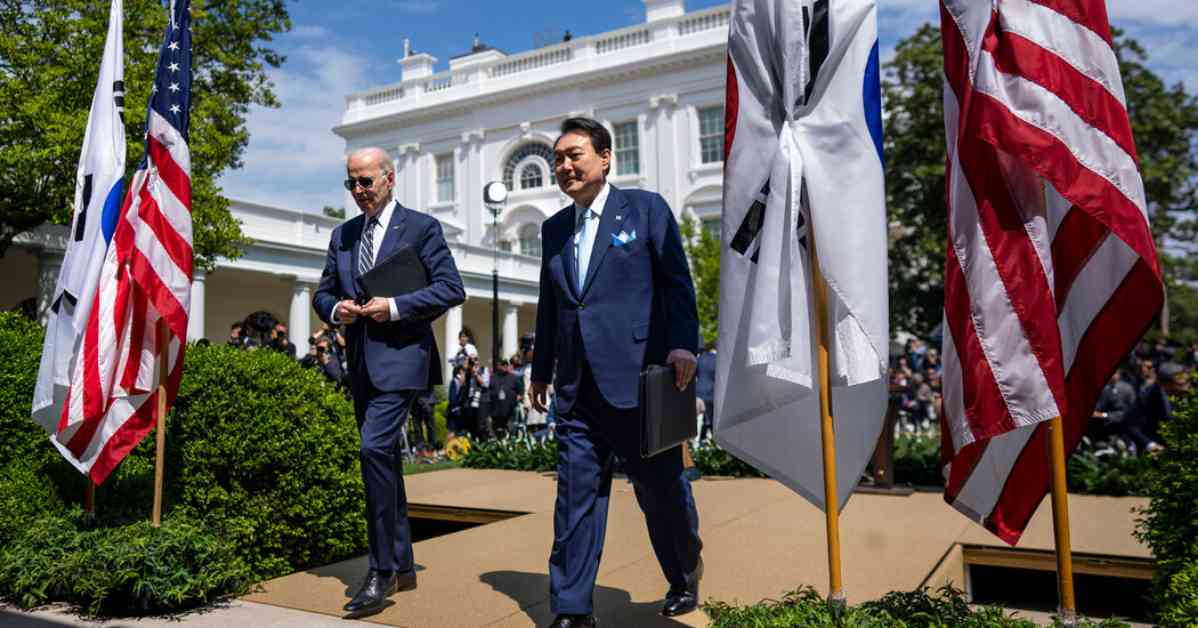The Biden administration has been closely monitoring the challenges that South Korea faces under martial law, a move that has put the U.S. alliance with the country to the test. President Yoon Suk Yeol of South Korea recently imposed martial law, accusing the opposition party of colluding with North Korea to undermine his leadership. This unexpected development has left the Biden administration in a difficult position, as they navigate their relationship with a key ally in Asia.
Biden’s Emphasis on South Korea
For decades, South Korea has been a crucial partner for the United States in Asia, not just because of the significant presence of American troops in the country, but also because of its status as a democratic stronghold in a region where authoritarian regimes are prevalent. President Biden has made South Korea a focal point of his foreign policy, hosting President Yoon Suk Yeol for a state dinner at the White House and emphasizing the importance of democracy in international relations.
The Implications of Martial Law
President Yoon’s decision to implement martial law has raised concerns in Washington, particularly as it caught the Biden administration off guard. The abrupt move has led to speculation about its timing, with some suggesting that President Yoon may have taken advantage of the U.S. government’s transition period. Despite the uncertainty surrounding the situation, U.S. officials have reaffirmed their commitment to their alliance with South Korea, emphasizing their unwavering support during this challenging time.
U.S. Response and Future Steps
In response to President Yoon’s actions, the White House National Security Council issued a statement expressing their serious concerns and pledging to monitor the situation closely. The Biden administration faces a delicate balancing act as they navigate their relationship with President Yoon, a conservative leader whose recent actions have raised questions about his commitment to democratic principles. As the U.S. government transitions to a new administration, the handling of the crisis in South Korea remains a top priority for President Biden and his team.
As we await further developments in this unfolding situation, the challenges of martial law in South Korea serve as a stark reminder of the complexities of international relations and the importance of upholding democratic values in the face of adversity. The Biden administration’s response to this crisis will undoubtedly shape the future of U.S.-South Korea relations and set the tone for their engagement with key allies in the region.

